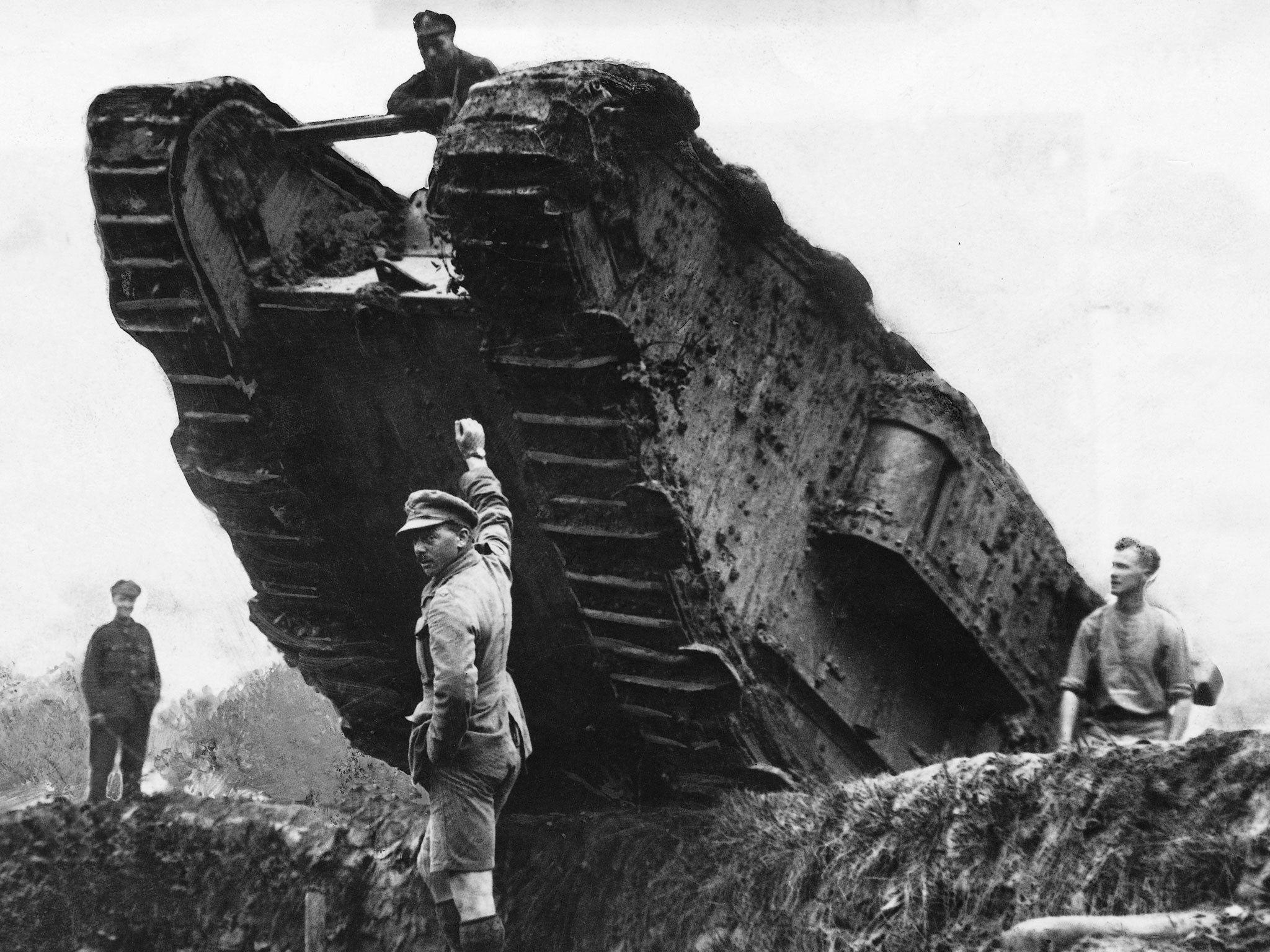I'm a German historian, so why did I know so little about my family's involvement in WW1?
Like many Germans, I have always felt uncomfortable about our military past

Your support helps us to tell the story
From reproductive rights to climate change to Big Tech, The Independent is on the ground when the story is developing. Whether it's investigating the financials of Elon Musk's pro-Trump PAC or producing our latest documentary, 'The A Word', which shines a light on the American women fighting for reproductive rights, we know how important it is to parse out the facts from the messaging.
At such a critical moment in US history, we need reporters on the ground. Your donation allows us to keep sending journalists to speak to both sides of the story.
The Independent is trusted by Americans across the entire political spectrum. And unlike many other quality news outlets, we choose not to lock Americans out of our reporting and analysis with paywalls. We believe quality journalism should be available to everyone, paid for by those who can afford it.
Your support makes all the difference.When I was asked if I had any knowledge of my family’s involvement in the First World War, I was dumbfounded. I had never thought about this question before.
Why is it, I then asked myself, that this question has never come up? Especially considering that I am a professional historian interested in, among other things, the history of soldierly fear during the First World War.
Well, it is probably to do with when and where I grew up. I was born in 1970 and mostly raised in Tübingen, West Germany ("mostly" because in between there were stints in the US).
In West Germany - and in East Germany too, but for different reasons - the First World War did not exist in individual, family or national memory. People did not commemorate their fallen grandfathers or great grandfathers like people do here in the UK. There were no public rituals or symbols.
True, many towns have war memorials, but these were usually built during the 1920s. When I was growing up, they were ignored or considered signs of embarrassment, viewed as products of post-Versailles wounded German pride and the interwar jingoism that eventually led to Hitler and the Holocaust.
I also remember the acute sense of bewilderment and shame when, after the fall of the Berlin Wall, I first visited the Jewish cemetery in Berlin-Weißensee. It is full of gravestones with patriotic imagery of men who died for the German "fatherland" between 1914 and 1918. Knowing what kind of future awaited these German patriots, had they lived until the rise of the Nazis, is eerie.
And then again, what is there to commemorate, in a positive sense? The Germans not only started the Second World War, but the majority of blame for the outbreak of the First World War is also on them, as a public debate known as ‘the Fischer controversy’ (after the Hamburg historian, Fritz Fischer, who started it) during the 1960s made clear.
But this amnesia about the First World War may be changing. We are currently witnessing a new interest in what Germans call the Urkatastrophe of the twentieth century. Partly this is driven by a globalised publishing market and a flood of translated books written for the centenary. The German edition of Christopher Clark’s Sleepwalkers has become a bestseller.
True, most commentators relate that to what they see as shifting the brunt of culpability for the war from the Germans to the Serbs. They see, in other words, the effect of Clark’s book as exculpatory. But there might be other currents at work.
The unified Germany is increasingly engaged in international peace-keeping efforts involving combat. While it could ignore the fallen of the two world wars, it is finding itself forced to come up with ways of symbolically honouring those citizens who are putting their lives on the line in such places as Afghanistan. And this reflects back on the ways in which the First World War is remembered.
Now, what of my family? I emailed my father, Harald (born 1945), who is from an extended family of Sudeten Germans in what, at the beginning of the First World War, was Austro-Hungarian Kaaden. Kaaden was the site of a military garrison and, in 1919, with the establishment of Czechoslovakia, became Kadaň.
Here’s what my dad wrote: "My father Alois, your grandfather, was born on 8 April 1898 and was sixteen years old at the beginning of the First World War. He was drafted in 1916 to the Austro-Hungarian infantry and sent to Ukraine in tsarist Russia. He never fired a bullet, as the area was already under occupation, and returned to Kaaden from the war unscathed."
I still know nothing about the maternal side of my family during the First World War. But I will find out. The simple question about my family heritage has struck a nerve for me.
Join our commenting forum
Join thought-provoking conversations, follow other Independent readers and see their replies
Comments